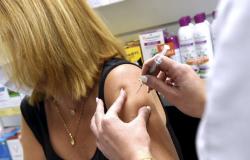THE ESSENTIAL
- Supply tensions have continued for two months for clarithromycin, an antibiotic prescribed for whooping cough, particularly in the 25mg/mL drinkable form.
- As part of the winter plan, supplies are “planned” and should allow a gradual improvement in the situation on the ground “in the coming weeks”, according to the ANSM.
- Although taking antibiotics protects people in contact with those suffering from this contagious respiratory disease, vaccination, which can be carried out at any age, remains the best prevention.
Since the start of 2024, whooping cough has seen an increase in cases in France. At the end of the year, the bacterium Bordetella pertussis, transmitted by air and responsible for this respiratory infection, still continues to actively circulate in the territory. Problem: while the treatment of this contagious disease, causing coughing fits, relies on taking antibiotics, shortages of these drugs persist in France. Indeed, if compared to last winter, the situation of supplies of amoxicillin and amoxicillin clavulanic acid has clearly improved, this is not the case for clarithromycin.
Whooping cough: an improvement in clarithromycin deliveries “in the coming weeks”
As a reminder, clarithromycin is an antibiotic from the macrolide family active on certain sensitive bacteria, such as Bordetella pertussis. This treatment, which must be taken for three to 14 days in the event of whooping cough, has been experiencing supply constraints for two months, particularly in the 25mg/mL drinkable form. But, on December 26, the National Medicines Safety Agency (ANSM) announced that, as part of the 2024-2025 winter plan, supplies were “planned” and should allow a gradual improvement of the situation in the territory “in the coming weeks.” “In this context, we asked the laboratories marketing clarithromycin drinkable or in tablets to favor the supply of pharmacies by wholesalers-distributors, in order to ensure equitable distribution across the territory. We also issued recommendations to ensure the treatment of younger children, in particular those for whom low weight prevents the use of graduated pipettes from 4 kg”, can we read in the press release.
Limit antibiotic prophylaxis to people at high risk of severe pertussis
At the same time, the agency wanted to recall the rules for the proper use of clarithromycin and antibiotics in general in order to guarantee coverage of patients’ needs. “Overconsumption and unjustified use of antibiotics constitute the main causes of the development of antibiotic resistance which contributes to reducing the effectiveness of antibiotics and where necessary contribute to aggravating situations of tension or stock shortages.”
She indicated that in the event of confirmed whooping cough, antibiotic prophylaxis should be limited strictly to the populations defined in the recommendations, namely babies under 6 months, infants 6 to 11 months with less than two doses of vaccine. or whose second dose is less than two weeks old as well as people sharing the same home or caring for them. Patients with chronic respiratory disease, immunodeficiency, obesity and those over 80 are also affected by antibiotic prophylaxis.
Whooping cough: vaccination, the best prevention
Although people in direct contact with whooping cough patients can be protected by taking antibiotics, the best prevention remains vaccination, which can be carried out at any age, particularly for adults in contact with children. during these end-of-year holidays. “Depending on age, it may be associated with vaccination against diphtheria, tetanus, poliomyelitis, Haemophilus influenzae type b meningitis, hepatitis B,” specifies Health Insurance.






